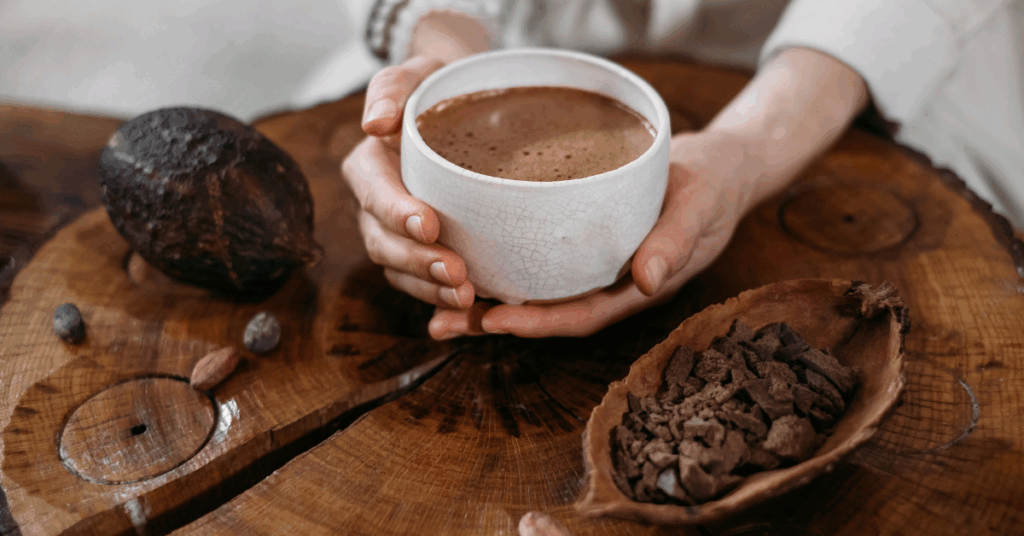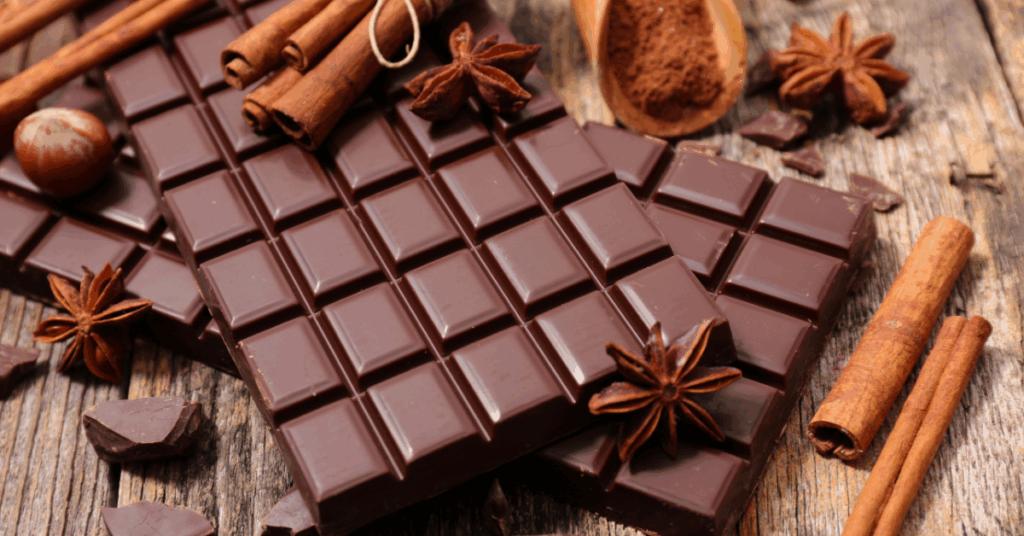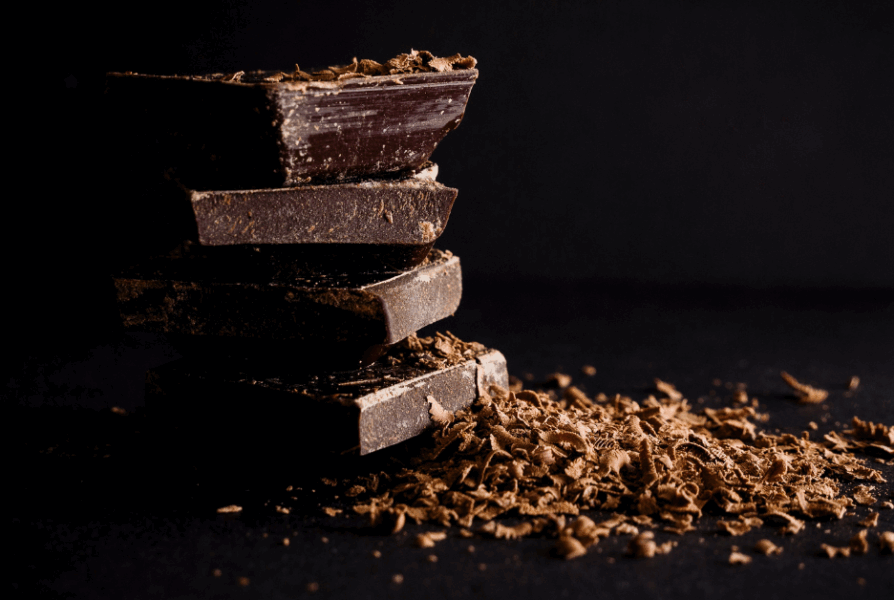Is Chocolate Healthy? Unwrapping the Truth
From luxurious truffles to humble bars, chocolate holds a special place in many hearts (and kitchen cupboards). But is it good for your health? The answer, like a good 70% dark bar, is rich and complex.
A (Brief and Delicious) History of Chocolate
Chocolate originates from the ancient Mesoamerican civilisations, where cacao beans were prized as sacred. The Maya and Aztecs used cacao in spiritual ceremonies, believing it could connect the physical and divine. Often consumed as a bitter drink, it was associated with the heart, vitality, and even the gods.
It wasn’t until the 16th century that chocolate arrived in Europe, gradually sweetened with sugar and milk. Over time, it transformed from sacred medicine to mass-market treat—changing its health profile along the way.
Dark, Milk or White: What’s the Difference?
Understanding how different types of chocolate affect your health starts with how they’re made.
| Type | Key Ingredients | Cacao % | Common Additions | Health Impact |
|---|---|---|---|---|
| Dark | Cocoa solids, cocoa butter, little/no milk | 50–90% | Minimal sugar | High in flavonoids, can lower blood pressure |
| Milk | Cocoa solids, milk powder, sugar | 10–50% | Sugar, dairy | Lower in antioxidants, higher sugar content |
| White | Cocoa butter, milk, sugar (no cocoa solids) | 0% | Vanilla, emulsifiers | No flavonoids, mostly fat & sugar |
Dark chocolate is the closest to cacao in its original, bitter form—full of plant-based compounds that benefit the body. Milk chocolate still contains some cacao but is diluted with sugar and dairy. White chocolate, while tasty, contains no cocoa solids at all—meaning no antioxidant benefit.

The Health Benefits of Chocolate
✅
1. Antioxidants for Your Body
Dark chocolate is rich in flavonoids, plant-based compounds known to fight inflammation and oxidative stress. These antioxidants may support heart health and help protect blood vessels.
✅
2. Brain Boosting Compounds
Studies suggest that cacao improves blood flow to the brain and may enhance cognitive performance—particularly in older adults. It can also stimulate the release of feel-good neurotransmitters like serotonin and dopamine.
✅
3. Gut-Brain Goodness
Emerging research connects cacao with the microbiome. Certain gut bacteria can ferment cacao polyphenols, producing compounds that influence brain function—fascinating for anyone exploring the gut-brain axis.
✅
4. Spiritual Satisfaction
Beyond science, chocolate can offer a mindful, almost meditative experience when enjoyed with intention. In some cultures, ceremonial cacao is still used today for emotional healing and spiritual connection—blending ancient wisdom with modern wellness.

The Negatives: When Chocolate Isn’t So Sweet
⚠️
1. Sugar and Additives
Most commercial chocolate, especially milk and white varieties, contain high levels of added sugar. Excessive sugar contributes to insulin resistance, weight gain, and poor dental health.
⚠️
2. Fat Content
While cocoa butter is a natural fat, some chocolates contain added vegetable oils or trans fats. These can increase cholesterol and contribute to cardiovascular disease when consumed excessively.
⚠️
3. Caffeine Sensitivity
Dark chocolate contains small amounts of caffeine and theobromine. For some people, especially in the evening, this can disrupt sleep or cause jitteriness.
⚠️
4. Ethical Concerns
Some chocolate is still produced using exploitative labour practices. Choosing Fair Trade or ethically sourced brands is important if you’re aligning with whole-body and soul health.
How to Enjoy Chocolate Mindfully
- Choose quality over quantity: A square or two of high-quality dark chocolate can be deeply satisfying.
- Pair with intention: Enjoy chocolate as part of a mindful moment, perhaps with a cup of herbal tea, during journaling, or post-yoga.
- Check the label: Look for simple ingredients—cocoa solids, cocoa butter, minimal sugar.
- Think ethically: Brands like Green & Black’s Organic or Tony’s Chocolonely offer better ethical standards for UK consumers.
Chocolate & Whole Health: A Mind-Body Treat
Chocolate can be both nourishing and indulgent when chosen wisely. From its ancient spiritual roots to modern science-backed benefits, it’s a beautiful example of how food connects the body, brain, and even soul. Enjoying chocolate doesn’t have to be a guilty pleasure—it can be part of a conscious, whole-health lifestyle.
When Chocolate Cravings Become a Problem
While enjoying chocolate mindfully can be part of a balanced lifestyle, for some people, cravings can feel overwhelming—especially when they’re tied to emotional eating or “food noise” (persistent thoughts about food that dominate your day). This is often more about dopamine than dessert. If you find yourself reaching for chocolate out of habit, stress, or low mood, rather than genuine enjoyment, it could be a sign your hunger hormones or insulin levels are out of balance.
At our clinic, we support patients through medically supervised weight loss, including prescribing Mounjaro (tirzepatide)—a weekly injection that helps regulate appetite, reduce cravings, and quiet food noise. It’s not about willpower—it’s about working with your body, not against it.
Curious if this could help you? Visit our Weight Loss Prescribing page or book a private consultation.
By Ali Sparkes BScHons MScEcon FRPharmS, Independent Prescribing Pharmacist
Helping you feel better, naturally.
Want to Learn More About Whole Health, Mindfulness & Nutrition?
Follow our blog for real-world tips on feel-good living—from pharmacy-based health support to ancient wellness wisdom.


